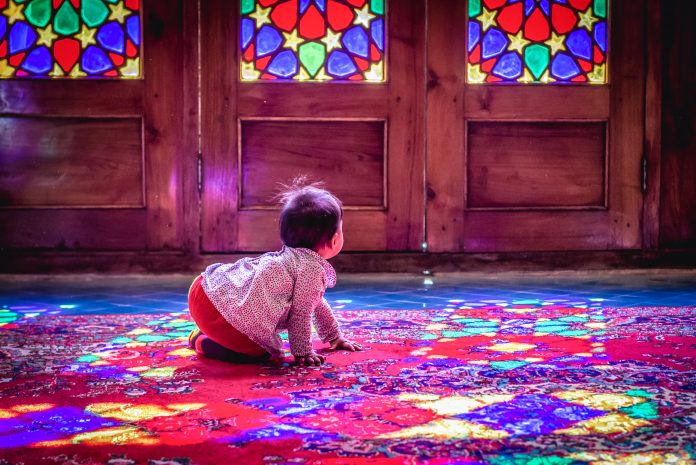Iran’s Parliament on May 13, 2019, approved an amendment on unfair citizenship law to allow Iranian women to pass their nationality to their children
The Guardian Council, the last body needing to approve the amendment, should adopt the long overdue reform to Iran’s discriminatory citizenship law.
The draft law would allow Iranian women married to men with foreign nationality to request Iranian citizenship for their children under age 18. A child who has already turned 18 could directly request Iranian citizenship. However, the bill requires the Intelligence Ministry to certify that there is no “security problem” before citizenship would be granted.
“Iran’s Parliament finally addressed a discriminatory law that prevented women from rightfully passing their nationality to their children,” said Michael Page, deputy Middle East director at Human Rights Watch. “This law could improve the lives of thousands of children, including those with Iranian mothers married to undocumented migrants.”
For the bill to become law, the Guardian Council, a body of 12 Islamic jurists, must determine that it is in accordance with Iran’s Constitution and Sharia (Islamic law).
Human Rights Watch has documented in several countries that discrimination against women in passing nationality to their children can harm children’s access to a range of human rights including education, health care, housing, and employment when they become adults. Amending the citizenship law to remove discrimination could improve the access for children of Iranian women to health care, university education, and work.
Iran’s Civil Code provides that children and spouses of Iranian men married are granted nationality automatically, while children born in Iran to foreign fathers must live in Iran at least until they are 19 before they can apply.
The current draft amendment does not equalize access to citizenship completely, as Iranian women must apply for nationality for their children, while children of Iranian men are granted nationality automatically. Children who turn 18 can apply for nationality themselves. The security check is required in both cases. The children of all citizens, whether men or women, should instead be granted citizenship on an equal basis, Human Rights Watch said.
Iran falls behind other countries in the Middle East and North Africa region including Algeria, Egypt, Morocco, Tunisia, and Yemen, all of which provide equal citizenship rights to the children of both women and men. Iraq and Mauritania confer nationality to children born in the country.
In October 2014, Iran’s Office of Women’s and Children’s Affairs created a task force to amend the law. In January 2015, Shahindokht Molaverdi, the then-vice president for women and family affairs, said the government was in discussions on solving the citizenship problem of children born to Iranian women married to Afghan migrant men.
It is unclear how many children in Iran have Iranian mothers and foreign fathers. However, the issue has come to prominence in recent years because of a large number of registered and unregistered marriages between Iranian women and Afghan men whose children are unable to obtain citizenship on an equal basis. In 2013, government reports indicated that the country had approximately 30,000 registered marriages between Iranian women and Afghan men.
In 2010, the Iranian government reported that there were about 32,000 additional unofficial marriages between Iranian women and Afghan men, but the real number might be higher.
The parliamentary news agency ICANA reported on May 13 that during the parliamentary debate, Amir-Hossein Ghazizadeh Hashemi, a member from Mashhad, said that a Sharia marriage, without government registration, is sufficient for being eligible under this draft amendment. But under article 1060 of Iran’s Civil Code, a marriage between an Iranian woman and man with a foreign nationality requires government approval, unlike for an Iranian man.
Afghans residing in Iran face many challenges and restrictions in accessing equal rights. Authorities have allowed undocumented Afghan children to attend school, but Human Rights Watch has also documented instances in which authorities recruited Afghan children to fight in Syria, in violation of international law prohibitions on the use of child soldiers.
By depriving children and spouses of their right to obtain citizenship on an equal basis with the children and spouses of Iranian men, Iran discriminates against Iranian women married to foreign nationals, and their children and spouses.
Iran is a party to international human rights treaties that prohibit discrimination against women in conferring nationality, including the International Covenant on Civil and Political Rights; the International Covenant on Economic, Social and Cultural Rights; and the Convention on the Rights of the Child.
The Convention on the Rights of the Child specifically calls on countries to ensure that all children have the right to acquire a nationality and other rights without discrimination of any kind against the child or their parents.
Page further commented:
“Iran’s nationality bill is a good start, but more reforms are needed to ensure that Iranian law is in step with the region and international human rights norms.
“Iran needs to recognize that the children of Iranian women are just as Iranian as the children of Iranian men.”











